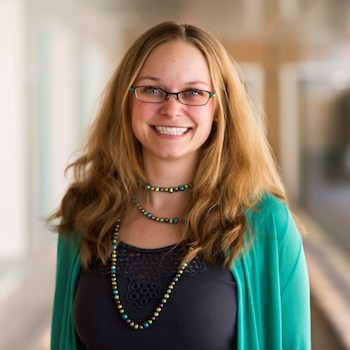Location
117 NAME
Phone
(734) 763-5008
Primary Website
Biography
I am a Lecturer and Research Investigator here at the University of Michigan. I grew up in Benton Harbor/St. Joseph, MI and came to the University of Michigan as an undergrad in the College of Engineering. Many years (and a few degrees) later, I’m still here — teaching, doing a little research on student teams and student experiences, and still bleeding maize and blue.
Research Interests
- effects of Project-based Learning and teams on First-year undergraduate engineering students
- effects of implicit bias on obstacles to student learning
Teaching
Engr 100: Intro to Engineering, Underwater Vehicle Design
This is an intensive first-year course for engineering students that covers engineering design and technical communication. All first-year engineering students are required to take this class. There are many sections to choose from, each with its own flavor. Mine, as you might imagine, has a naval architecture and marine engineering flavor. I am the technical instructor for Section 600, in which students work in teams of five to build Remotely Operated Vehicles over the course of the semester as part of a design-build-test-communicate cycle. You will not become an expert hydrodynamicist in Engr 100-600. However, you will get exposure to the following engineering topics within the context of the ROV project: team communication and collaboration, 3D modeling and printing, pressure, buoyancy, stability, technical documentation (presentations and reports), basic electric circuits, systems design, probability, statistics, risk, and ethics. If you are a current U-M student who is trying to figure out what section of Engr 100 to take, here is a more detailed course description for Section 600 that might help you in your decision-making.
Engr 101: Intro to Computer Programming
Okay, so this is another course that first-year engineering students are required to take. But this one is run a little differently than Engr 100. Engr 101 is run as one giant course, with about 700 students a semester, broken into 3 lectures, one of which I teach. But don’t worry! We have a huge team of fantastic graduate and undergraduate instructors to help us; they are from all the different engineering departments and they are eager to help you learn to harness your most powerful engineering tool: your computer. We focus on solving real-world engineering problems using computer programming to automate our calculations and display our data so we can make informed decisions. There are 6 projects that will guide you through solving engineering problems using computer programming such as error analysis, system coefficient selection, health monitoring, and delivery logistics. If you have experience with programming already, each project has a number of “reach goals” to keep you honing those programming skills. No matter what your skill level is, come hang out with us during office hours and see how truly powerful your computer can be with you at the helm (yeah, had to work in a naval arch reference there).
